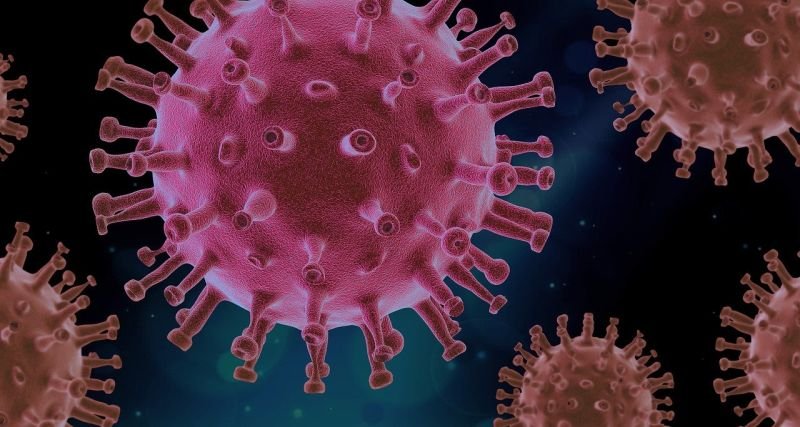Last Updated on
This post was written in April, 2020 and whatever we assumed might happen, it actually happening and most likely will become our every day life.
Coronavirus, or as it is officially named by the WHO, COVID-19, has created a havoc in almost every corner of the world. Tens Hundreds of thousands of people died, infection rate will reach two million 32 million total cases in no time, entire countries (and regions) are in a lockdown, many industries are at standstill, millions are being laid off and global economic outlook is gloomy, to say at least.
Travel industry is no exception: several large airlines are either bankrupted or near compete shut down, hotel industry is almost completely out of business around the world and travel industry in general is very much at a full stop.
Current pandemic will leave lasting impact on human behavior, way of life, economy and travel plans in the foreseeable future.
Let’s see what will change for a common traveler and how we will travel after COVID-19, when this is over. Yes, we are optimistic and hope that pandemics will finish very soon (update: it looks like vaccines will be available for mass use by mid-2021, so ‘soon’ WAS optimistic)!

Travel might will become more expensive
That’s right, with many travel related industries collapsing, demand might grow considerable higher than available supply of travel services, so prices might go up. With less competition among airlines, hoteliers and tour operators, there will be less offers and deals. There will be no need for discounts and offers if all the seats or packages are fully booked.
On the other hand, if oil prices remain low, this might affect positively prices of air travel as large part of ticket price is based on fuel expenditures. It remains to be seen how this will unfold when everything goes back to normal.
There might be some other expenses indirectly related to travel that might incur in this situation and they will be listed further in this article.
You might will need to pack differently
Our habits of traveling light might be altered a bit lot – we will might need to bring extra clothes, face masks, gloves, hand sanitizes and some extra medicine (just in case). All this won’t be able to fit into a carry-on, so extra luggage is to be expected. This will, of course, increase trip budget as well.
You will might need to obtain mandatory COVID-19 test, vaccination or medical certificate
It is still not clear how the movement of people between the countries will be facilitated: mandatory health certificate/negative COVID-19 test, mandatory health check upon entry, quarantine, etc.
In case when COVID-19 vaccine is developed and approved for public use, some countries might ask for it (with certificate) as a mandatory requirement for entry into a country. Similar requirement is for Yellow Fever vaccination in some countries in Africa and Asia.
Until vaccine is available, countries will probably ask for some sort of recent medical certificate to confirm that you are virus free. This will add extra cost and additional hassle for your travel plans.
Airport queues will might become longer
In a situation where you will probably have to wear face mask and gloves, have additional medical certificate or vaccination certificate and even subjected to quick medical exam – temperature check, etc, queues at the airport might will just become longer and more painful.
This will add to your waiting time and become stress factor in the future. Hopefully, airports will be prepared for new measures and make our travels less hectic.
You will need to be prepared better for emergencies while you travel
More than before, traveling abroad will require from you to become more vigilant and more aware about your surroundings and global situation.
To be on a safe side, you will need to purchase travel insurance, in case your credit card company doesn’t provide comprehensive travel insurance coverage. Do a research before your next trip, it is better to be safe than sorry.
You will need to make sure that there are adequate medical facilities in the area where you travel in case of any emergencies and to have information about your country’s embassy or consular offices in destination country.
Current recommendations about washing hands regularly, keeping distance and not touching your face might be in place for extended period, so it will be new normal during your future travels.
And it goes without saying, if you notice any symptoms of COVID-19 or any other health problems, to immediately look for medical help.
You will not have time to waste!
Like with any emergency, don’t waste time! We know it is very frustrating to cut your hard-earned holidays and go back home because of emergency situation (global pandemics, natural disaster or political unrest), but price to be paid is too much and again, better to be safe than sorry. There will always be chance to earn more money and days off to travel again when you are, you know, alive.
Conclusion
Travel habits might will change and travelling might will become more expensive and more complicated, but we will need to adapt to a new reality. Most of the above listed examples are only speculations currently (not really, lots of the staff are actual fact, especially mandatory COVID-19 test before traveling), and very optimistic ones, to be honest. How will situation about global pandemics, economic outlook and travel evolve in next couple of months or a year (or even few years) is yet to be seen. We, in gotravelyourself.com (and our other websites) don’t know for sure how will we travel in a near future, but can tell you one thing: Stay safe!

